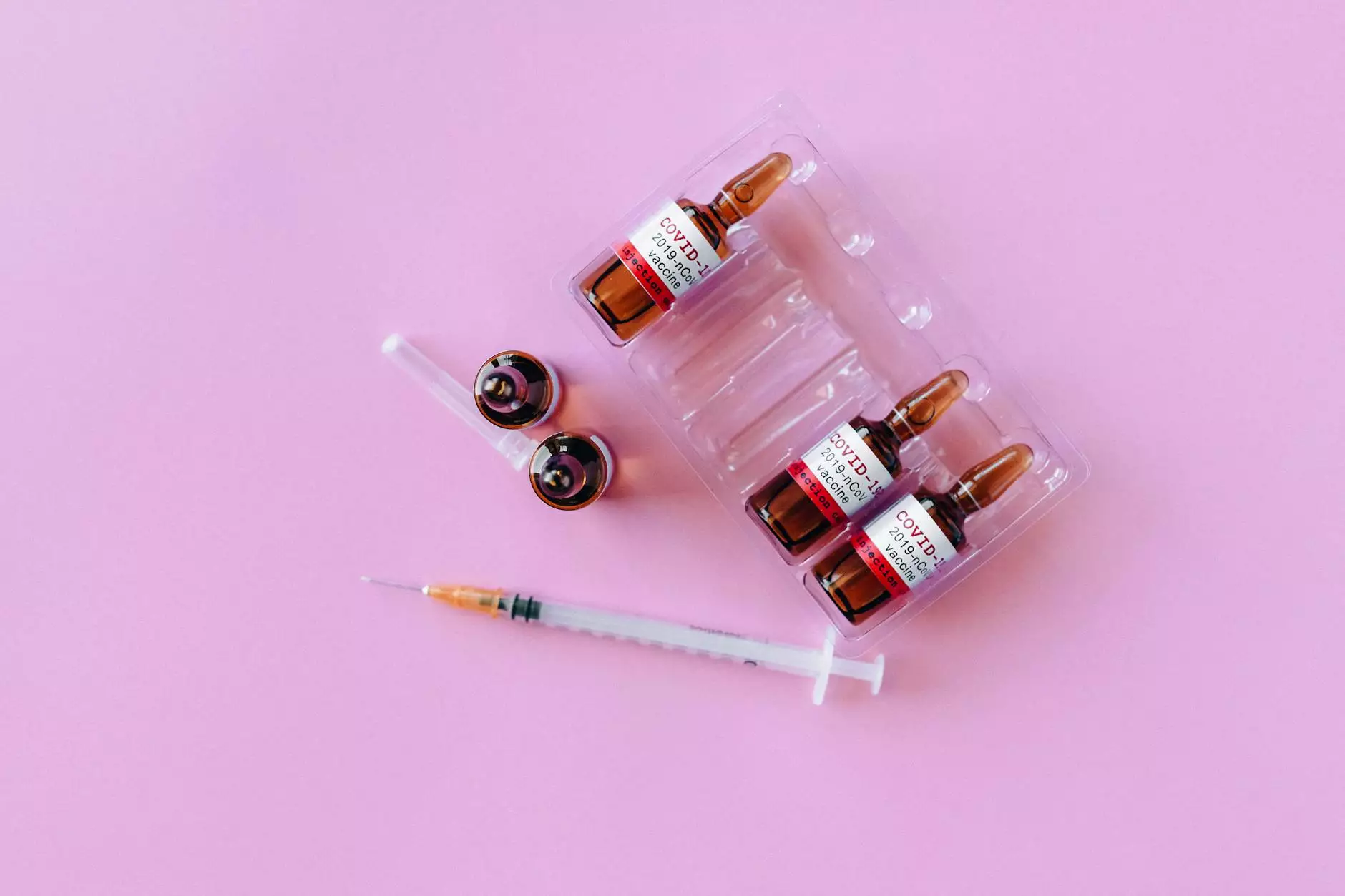Understanding IGF-1 Growth Hormone in Equine Medicine

The world of veterinary medicine is constantly evolving, particularly in areas related to enhancing the health and performance of animals. One of the most significant advancements in this field is the understanding and application of IGF-1 growth hormone. This article delves deep into IGF-1, its mechanisms, benefits, and its crucial role in equine pharmacy, especially in maintaining the overall well-being of horses.
What is IGF-1 Growth Hormone?
The Insulin-like Growth Factor 1 (IGF-1) is a peptide hormone that plays a vital role in growth and development. It is produced mainly in the liver as a response to growth hormone (GH) secretion from the pituitary gland. IGF-1 is essential for various biological processes, including cell growth, metabolism, and muscle development.
The Mechanism of IGF-1 Action
IGF-1 operates through a complex signaling network. When released into the bloodstream, it binds to specific receptors on target tissues, triggering a cascade of biological responses. These actions include:
- Stimulating protein synthesis: Enhances muscle growth.
- Promoting cell division: Aids in tissue repair and regeneration.
- Influencing glucose metabolism: Improves energy utilization in muscles.
Importance of IGF-1 in Equine Health
In the context of equine medicine, IGF-1 becomes particularly important for several reasons:
- Muscle Development: Adequate levels of IGF-1 are crucial for the development of lean muscle mass, which is essential for athletic performance in horses.
- Recovery from Injury: IGF-1 promotes recovery from injury by stimulating healing and regeneration of tissues.
- Maintaining Healthy Weight: It helps in the regulation of energy metabolism, which is vital for maintaining optimal body weight in performance horses.
Applications of IGF-1 in Equine Pharmacy
In equine pharmacy, IGF-1 is utilized in various applications, primarily focusing on improving horse health and enhancing performance. Some notable applications include:
- Performance Enhancement: Athletes in the equine world utilize IGF-1 for its potential in enhancing performance levels, particularly in racehorses and showjumpers.
- Rehabilitation: IGF-1 can significantly speed up recovery from musculoskeletal injuries, allowing horses to return to training sooner.
- Improving Muscle Mass: For older horses or those with muscle-wasting diseases, IGF-1 injections may help to regain lost muscle mass.
Administering IGF-1 Therapeutically
The administration of IGF-1 in horses must be approached with caution. Veterinarians usually prescribe specific dosages based on the horse's health status, size, and intended use. The most common methods of administration include:
- Subcutaneous Injections: This method is often preferred due to its ease of administration.
- Intravenous Injections: For more immediate effects, some veterinary practices may opt for intravenous routes.
Safety and Regulations Surrounding IGF-1
While IGF-1 has numerous benefits, it is essential to adhere to safety protocols. Overuse or misuse can lead to negative health effects, such as:
- Hormonal Imbalances: Can disrupt the natural hormonal environment.
- Potential for Abuse: In the competitive equine industry, there is a concern for the ethical implications of performance enhancement.
Veterinary regulations often dictate the use of IGF-1, making it important for owners and trainers to be aware of the laws in their respective jurisdictions regarding hormone use in horses.
Conclusion: The Future of IGF-1 in Equine Medicine
As we continue to explore the benefits of IGF-1 growth hormone in equine medicine, its potential for improving horse health and performance remains promising. With ongoing research and advancements in veterinary practices, IGF-1 may well become a cornerstone in the treatment and management of equine athletes.
Considerations for Horse Owners
Horse owners should consult with a qualified veterinarian before considering IGF-1 growth hormone treatment options. Proper evaluation and dosage can help harness the benefits while mitigating risks associated with its use. By doing so, owners can contribute positively to their horse's health and performance.
Frequently Asked Questions (FAQs)
1. Is IGF-1 safe for my horse?
When administered under veterinary supervision and in appropriate doses, IGF-1 can be safe for horses. However, misuse can lead to complications.
2. How long does it take for IGF-1 to show effects in horses?
The effects of IGF-1 can vary, but many horses may start to show improvements in muscle mass and recovery within a few weeks of treatment.
3. Can IGF-1 be used in competition horses?
Owners should check the regulations regarding IGF-1 use in their specific equestrian sport, as it may be banned in some disciplines.
4. Are there any side effects of IGF-1 treatment?
Potential side effects can include hormonal imbalances and reactions at injection sites, emphasizing the need for veterinary oversight.
5. Can I administer IGF-1 myself?
Only qualified veterinarians should administer IGF-1 to ensure safe and effective treatment.
Final Thoughts
Understanding the role of IGF-1 growth hormone in equine medicine can provide significant benefits for horse owners and trainers. Whether you're focused on improving performance, aiding recovery, or enhancing overall health, educating yourself on the implications and proper use of this hormone can lead to better outcomes for your equine companion.









